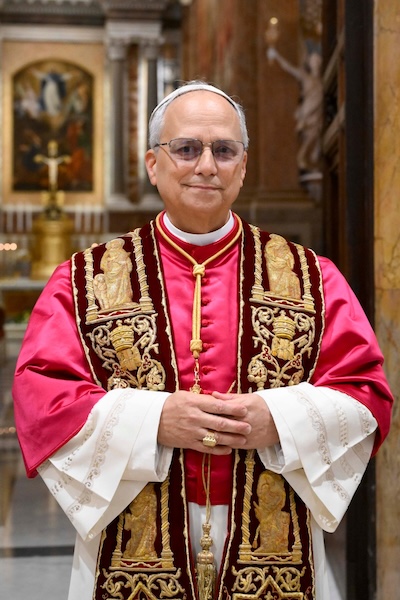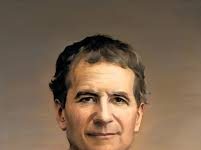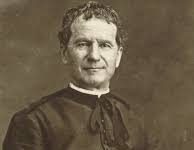
Popes used to avoid off-the-cuff interviews or answers to questions, knowing that the authority of their office carried far more weight, and was easily confounded with the fallible opinions of the man behind that office. Measured, thought-out, pondered and prayed over, advised and edited – only after such were papal pronouncements made.
Now we have popes pontificating – pardon the pun – on any number of topics, from climate change to politics, and much that is in-between. To remain even-keeled in the traditional teaching of the Church, Catholics need either to tune out from such non-Magisterial interventions – difficult in this age of ubiquitous media – or develop some discernment.
Hence, in light of the Pope’s comments in response to the recent Senator Durbin debate, allow me not so much to criticize Leo, but to analyze his words.
Readers may be aware that Cardinal Cupich planned to bestow a Catholic lifetime achievement award on the Senator, who has consistently voted for policies supporting abortion, up to and even beyond birth. (The Senator has since apparently refused to accept the award, according to Cardinal Cupich). Ten bishops sent notes of remonstrance to Cardinal Cupich – good for them, but why so few? – that such is against the conference’s own policies and so on. Cupich has called for unity and dialogue.
What makes this more troubling is the Pope’s response to a question about the situation. He first confessed he was not aware of the details, which may have ended the matter, but then went on to state the following:
Someone who says I’m against abortion but says I’m in favor of the death penalty is not really pro-life…Someone who says I’m against abortion but I’m in agreement with the inhuman treatment of immigrants in the United States, I don’t know if that’s pro-life.
So, they are very complex issues, I don’t know if anyone has all the truth on them, but I would ask first and foremost that there would be greater respect for one another and that we search together both as human beings, in that case as American citizens or citizens of the state of Illinois, as well as Catholics to say we really need to look closely at all these ethical issues and to find the way forward as Church.
(One may watch the exchange here).
Let’s just take three of the most pertinent aspects of this rather telling brief answer.
Someone who says I’m against abortion but says I’m in favor of the death penalty is not really pro-life
What is one to say, then of Augustine, Aquinas, Thomas More, Robert Bellarmine, three of them Doctors of the Church, and all of them in support of capital punishment? Were they unenlightened and not really pro-life? And what of their successors and everyone else in the Church, including John Paul II, until Pope Francis revised paragraph 2267 of the Catechism? And if they were simply ‘products of their era’, locked within historical and cultural confines, then why cannot the same be said of Francis, Leo, Cupich and anyone else?
The Church has never condemned capital punishment, and are we to equate the taking of the life of someone found guilty of grave crime, with the murder of an innocent child guilty of no crime? Even Francis simply stated that the death penalty was ‘inadmissible’, which is not a theological term, but more a legal and circumstantial one.
More might be said, but let’s move on.
Someone who says I’m against abortion but I’m in agreement with the inhuman treatment of immigrants in the United States, I don’t know if that’s pro-life.
Whatever may be meant by ‘inhuman treatment of immigrants’ is even less comparable to abortion than capital punishment, both of which at least involve killing. No one’s talking of killing anyone here. Many of these ‘immigrants’ have entered the country illegally, which is itself unjust to all those who spend years going through the proper channels.
It seems anything less than full access to any and all services, along with full rights of a citizen, and no possibility of deportation, implies something ‘inhuman’. If the unborn could speak – and they will, at the final judgment – they could give us some idea of what ‘inhuman treatment’ implies.
Then we have the final bit:
So, they are very complex issues, I don’t know if anyone has all the truth on them
We may agree that no one has all the truth on capital punishment or how to treat (illegal) immigrants. These issues are complex and fraught, on which we might debate. But abortion is not so, and on that we do indeed have ‘all the truth’ we need: It is pre-natal infanticide, on which there is no debate nor wiggle room. Murder, pure and simple, and we should call it like it is, to echo John Paul II in his Evangelium Vitae.
procured abortion is the deliberate and direct killing, by whatever means it is carried out, of a human being in the initial phase of his or her existence, extending from conception to birth.
The moral gravity of procured abortion is apparent in all its truth if we recognize that we are dealing with murder and, in particular, when we consider the specific elements involved. The one eliminated is a human being at the very beginning of life. No one more absolutely innocent could be imagined. (par. 58)
The task of a pope is not to ambiguate or obscure, but to clarify and defend the salvific deposit of the Faith. We should pray that the Fourteenth Leo fulfil this task, by the grace of the Holy Spirit, Who will lead us into all truth.











